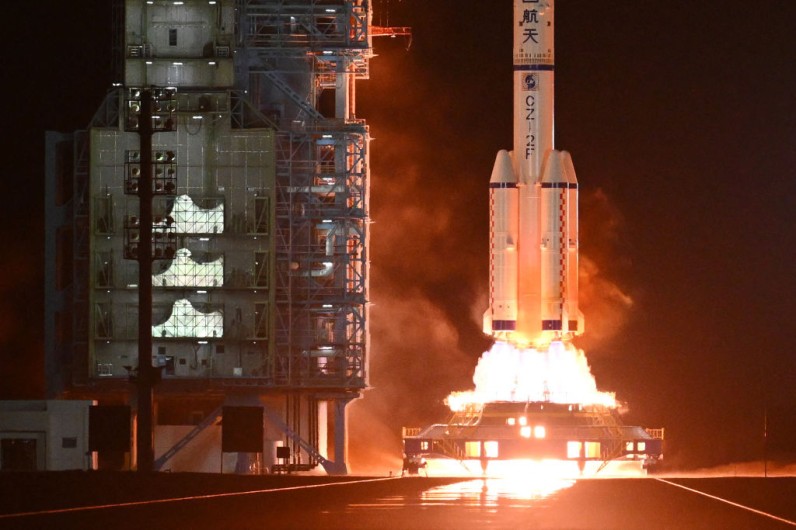
A spacecraft from China successfully landed on the far side of the moon on Sunday (June 2). Its mission is to collect soil and rock samples, which could potentially reveal valuable information about the differences between this less-explored region and the more familiar near side.
China's Moon Mission
The landing module successfully touched down at 6:23 a.m. Beijing time in the South Pole-Aitken Basin, a massive crater, according to the China National Space Administration. This mission is the sixth in the Chang'e moon exploration program, which is named after a Chinese moon goddess.
The moon program is a result of an increasing competition with the US, which remains the dominant force in space exploration, as well as other countries like Japan and India, AP reported. China has successfully launched its own space station into orbit and maintains regular crew rotations.
The emerging global power has set its sights on sending a person to the moon by 2030, a feat that would place it in the company of the United States as the only nations to achieve this milestone.
The United States is currently making preparations to send astronauts back to the moon, marking a significant milestone after a gap of over five decades. However, NASA recently announced a revised target date of 2026 for this ambitious mission.
Spacecraft Drops Unidentified Cargo
This spacecraft has been observed deploying cargo on previous occasions. Six objects were released shortly after their launch late last year. These objects were observed to be transmitting signals before they were apparently recovered.
There were observations of objects detaching from the craft and remaining in orbit just before both of them landed, NEWS reported. It is unusual that satellite deployments are typically announced for traffic control purposes, even if the specifics of their purpose are not disclosed.
However, the peculiar actions observed in space are causing concern among global defense forces. The Space Force is eager to emphasize the potential threats posed by Russia and China in space.
"China, for instance, has developed a sensor-shooter kill web that poses a significant threat to our forces and allies stationed in the Pacific," General Saltzman informed an Australian audience recently.
Additionally, there is a concerning increase in the threat posed by anti-satellite missiles and satellites designed for destructive purposes.







Join the Conversation